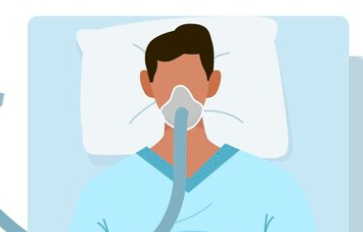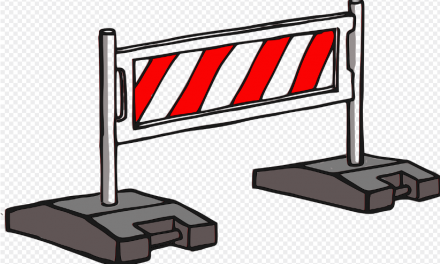Prefer to listen? Check out my podcast here!
As many as 1 BILLION adults worldwide are estimated to have obstructive sleep apnea (OSA), and 70% of people with OSA have obesity. OSA causes sleepiness, decreases cognitive (brain) functioning, reduces quality of life, and is associated with many health risks including cardiovascular events, car accidents, and weight gain, to name a few. For people with OSA and elevated weight, weight loss is recommended. With weight management medications or bariatric surgery, just how much does OSA improve? A recent review article strives to answer this question.
Quick backgrounder: The severity of obstructive sleep apnea (OSA) is defined by the number of apnea (stop breathing) plus hypopnea (reduced airflow) events per hour, called the apnea-hypopnea index or AHI.
- Mild OSA: AHI 5-14/h
- Moderate OSA: AHI 15-29/h
- Severe OSA: AHI ≥30/h
The review, published in Obesity Reviews, compiled data from randomized trials of people with overweight or obesity and OSA, who were treated with either obesity medication or bariatric surgery. They included three studies of gastric banding, one gastric bypass, three with GLP1 receptor agonists [two liraglutide 3mg (Saxenda) and one exenatide (aka Byetta/Bydureon – diabetes medication, not weight management medication)], and one each of phentermine/topiramate (Qsymia), zonisamide (not a weight loss medication), and dapagliflozin (Forxiga – a diabetes/heart failure/kidney medication, not a weight management medication).
When all of these data were pooled together, they found that each 1% weight loss resulted in a decrease in apnea-hypopnea (AHI) events by 0.45 per hour. They did not find any difference between the different types of treatments, though the number of included studies was small.
If we are going for remission of sleep apnea, these data suggest that weight loss interventions may only accomplish this in mild cases, or if a greater weight loss is seen. Case-control or cohort data have suggested a remission rate of OSA of 65% after bariatric surgery (see this review), though these types of data are not as robust as randomized trials.
As noted in the article, lifestyle interventions are less impactful to improve OSA, suggesting that there may be other mechanisms at play with medication or surgery-induced weight loss, such as improved arousal threshold or ventilatory control.
Tantalizing us this week is a potential game-changer in the OSA space (not included in the above review): a high-level press release of the SURMOUNT OSA trials. It was revealed that one year of treatment with tirzepatide (Zepbound for weight management, Mounjaro for diabetes) improved AHI by 27.4 events/h vs 4.8 events/h with placebo amongst people with moderate to severe OSA and obesity who were not on positive airway pressure (PAP) therapy. Weight loss was -18.1% with tirzepatide vs -1.3% with placebo. Amongst people who were on and planned to continue PAP therapy, improvement in AHI was 30.4 events/h with tirzepatide vs 6 events/h with placebo, with weight loss of -20.1% and -2.3% respectively. These data have not been presented, nor peer reviewed or published – we look forward to learning more about these studies when the full data become available. Other emerging potential weight management medication strategies are also under evaluation as treatment of OSA.
BOTTOM LINE: Based on the analysis in this article, each 1% weight loss with medications causing weight loss or bariatric surgery improves sleep apnea a little. A greater weight loss gives greater benefit. New and emerging data with new treatment approaches are exciting – I will keep you posted with further updates!
Disclaimer: I receive honoraria as a continuing medical education speaker and consultant from the maker of liraglutide (Novo Nordisk), tirzepatide (Eli Lilly), exenatide, and dapagliflozin (Astra Zeneca). I am/have been an investigator in clinical trials of liraglutide, tirzepatide, and dapagliflozin.
Check me out on X/twitter! @drsuepedersen
Share this blog post using your favorite social media link below!
www.drsue.ca © 2024












